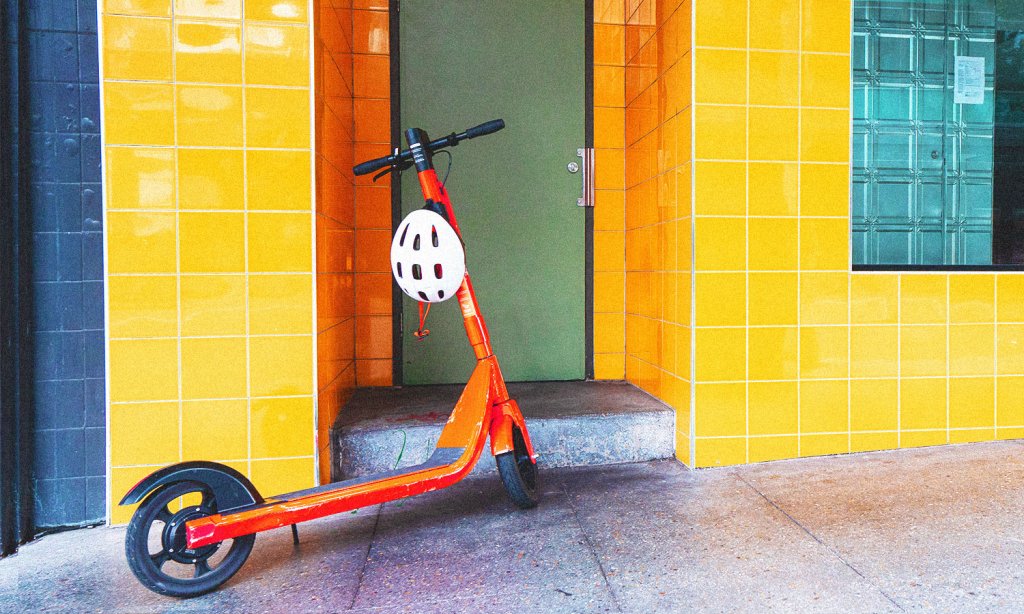A Melbourne man has become the eighth person to die in an e-scooter-related crash since 2018, when the Australian e-scooter market first took off. According to police, the 28-year-old from Pascoe Vale hit a speed bump at “well over 20kms” while not wearing a helmet.
Around the country, states and local governments are trialling and experimenting with laws that allow for their use, but the public is mainly taking matters into their own hands and riding them anyway.
E-scooters are heavily regulated on public roads in Australia, with only QLD and the ACT generally allowing their use. But that hasn’t stopped some quarter of a million e-scooters and bikes being sold in the country since 2018, with a further 100,000 expected to be bought this year alone.
While states investigate where and how they should be allowed to be used, police are cracking down, with officers handing out fines in Melbourne’s inner north this past weekend.
It’s your classic public safety vs individual liberty debate, with proponents arguing that they are a much more environmentally friendly means of transport than cars or busses, while concerns grow over the hundreds of severe injuries caused through their use.
Since December of 2021, the City of Ballarat has been running a trial on the use of e-scooters which has seen “63% of all trips” replacing car rides, according to e-scooter company Neuron, who is providing the rides for the trial.
However, in an eight-month period from January to September, there were also 40 e-scooter-related presentations to Ballarat’s emergency department. This is from both private and rented e-scooters.
Across the country, hospitals in Melbourne, Perth, and Brisbane are reporting “daily” admissions from injuries to riders and pedestrians from e-scooter incidents.
In Townsville, Dr Graeme Maw reports seeing “traumatic brain injuries, severe dislocations, and broken bones” as an average of one person per day comes through his hospital.
“Often, these patients go on to suffer relatively significant long-term impacts from these sort of injuries,” he told the ABC.
Half of those who end up in the emergency room are not wearing helmets, while more 75% had consumed alcohol. 70% of those presenting are also male, with the majority being in the 18-to-30-year-old age group.
For the people that ride them, e-scooters are a fun and convenient way to get around the city. They also come with the added bonus sticker of being eco-friendly, although this has been challenged, and increasing access to transport for people with disabilities.
A trial in Wellington, New Zealand, found that 13% of users with accessibility needs said that they wouldn’t have undertaken their most recent trip had they not had access to an e-scooter. 91% of people with accessibility needs strongly supported their availability.
Even so, it seems NSW, the most restrictive state when it comes to e-scooters, and basically, everything else, has dealt the industry a further blow as councils back out of their upcoming trial.
After their experiences with shared bikes and e-bikes, which mainly ended up littering parks or being dumped in the harbour, councils seem reluctant to try again with e-scooters. Plus, the NSW state government, in their wisdom, has passed the road safety audit cost onto councils who want to sign up to the trial, to the tune of $300,000.
Councils in Parramatta, Liverpool, and Wollongong have said that they are interested in being a part of the next stage of the trial but safety and legal concerns remain. E-scooters remain in a legal grey area that often leaves riders and pedestrians involved in a crash out of pocket or facing down unexpected insurance and medical costs which they may or may not be liable to pay.
While the transport might have a big role to play in greening our cities, if they can actually replace other forms of transport, we’re likely to see a continuation of the carnage and collisions on our roads during this weird, free-for-all transition period.
Related: Minimum Space for Passing Cyclists Is Now Law in Australia, But It Could Worsen Road Rage
Related: There’s a Huge Chance NSW Trains Rides Will Be Free From October 12
Read more stories from The Latch and subscribe to our email newsletter.







